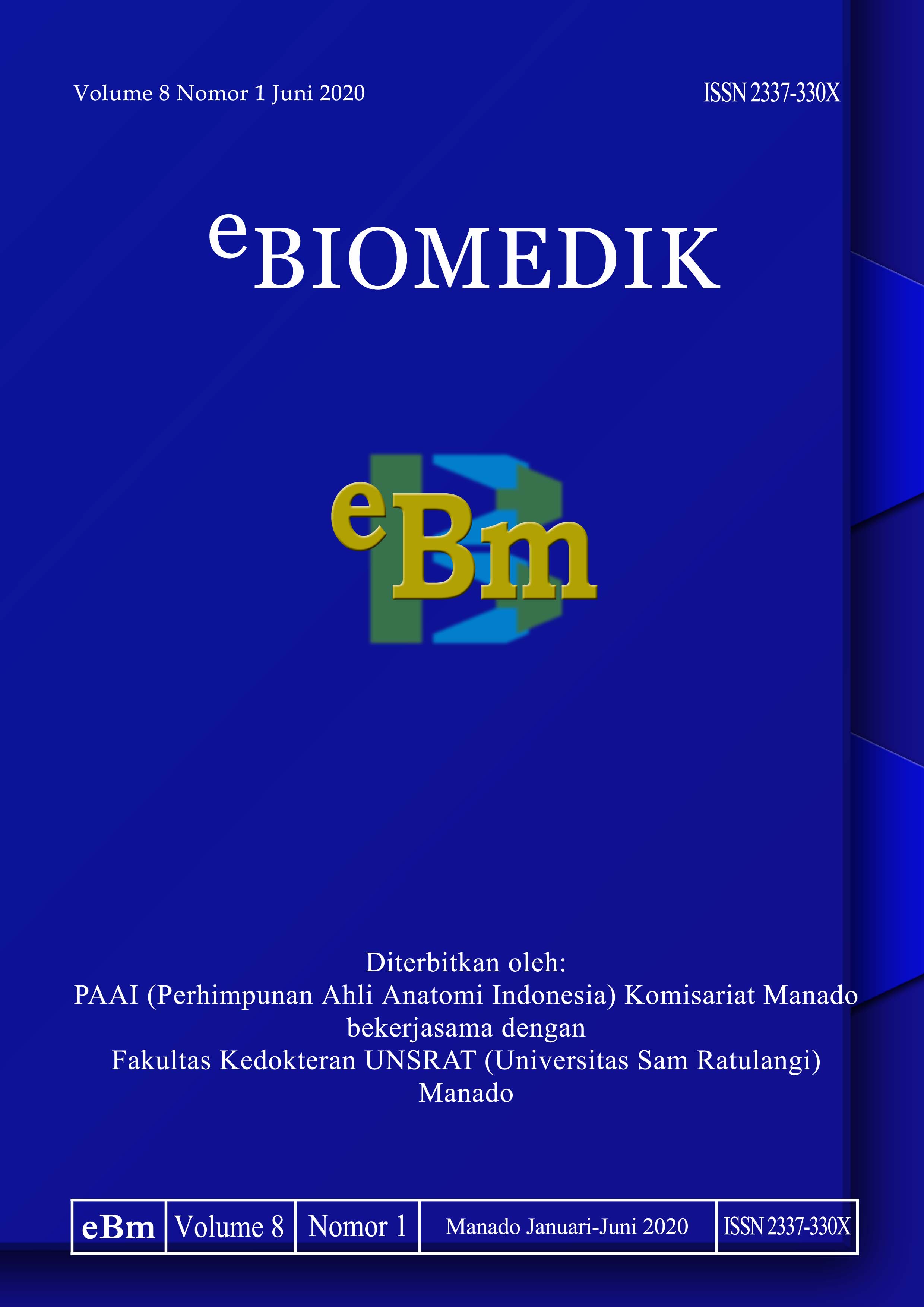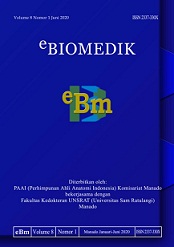Mekanisme Kinerja Otak yang Mengatur Fungsi Spiritual pada Pasien Penyakit Jantung di RSUP Prof. DR. R. D. Kandou Manado dengan Menggunakan Applied Neuroscience for Spiritual Health Assessment (ANSHA)
DOI:
https://doi.org/10.35790/ebm.v8i1.27648Abstract
Abstract: The brain as an organ with complex connections produces cognitive functions associated with the prefrontal cortex and emotional processes in the limbic system. Brain involvement results in the manifestation of spiritual states. Research using SPECT by Amen divides five brain systems, including the prefrontal cortex, limbic system, basal ganglia, cingulate gyrus, and temporal lobe. Spirituality as a transcendent form of connection to the larger context is divided into four dimensions, there are meaning of life, spiritual experiences, positive emotions, and ritual. The Applied Neuroscience for Spiritual Health Assessment (ANSHA) instrument is an examination based on theoretical concepts of spirituality to determine the relationship of the spiritual dimension to the mechanism of the human brain. This study aims to determine the specific brain performance mechanisms that regulate spiritual functions with one-to-one, one-to-many, many-to-one, or unrelated relationships using ANSHA in heart disease patients who are hospitalized at RSUP Prof. Dr. R. D. Kandou Manado. This type of research is descriptive correlative with analytic survey methods. Samples obtained were 17 patients. Spearman correlation test results showed a direct correlation (0.593) with sig. 0.012> α = 0.05 between cingulate gyrus and spiritual experiences. In conclusion, there is a moderate correlation on the mechanism of brain performance that regulates spiritual function in heart disease patients at Prof. RSUP Dr. R. D. Kandou that was measured using ANSHA.
Keywords: brain performance, spirituality, ANSHA
Â
Abstrak: Otak sebagai organ dengan koneksi yang kompleks menghasilkan fungsi kognitif yang berasosiasi dengan korteks prefrontalis dan proses emosional pada sistem limbik. Keterlibatan otak menghasilkan perwujudan keadaan spiritual. Penelitian menggunakan SPECT oleh Amen membagi lima sistem otak, yaitu korteks prefrontalis, sistem limbik, ganglia basalis, girus singulatus, dan lobus temporalis. Spiritualitas sebagai bentuk transenden pada koneksi untuk konteks yang lebih besar terbagi atas empat dimensi, yaitu makna hidup, pengalaman spiritual, emosi positif, dan ritual. Instrumen Applied Neuroscience for Spiritual Health Assessment (ANSHA) merupakan alat ukur pemeriksaan berdasar pada konsep teoritis spiritualitas untuk mengetahui hubungan dimensi spiritual dengan kinerja otak manusia. Penelitian ini bertujuan untuk mengetahui mekanisme kinerja otak spesifik yang mengatur fungsi spiritual dengan hubungan one to one, one to many, many to one, atau tidak berhubungan menggunakan ANSHA pada pasien penyakit jantung yang dirawat inap di RSUP Prof. Dr. R. D. Kandou Manado. Jenis penelitian adalah deskriptif korelatif dengan metode survei analitik. Sampel yang didapatkan berjumlah 17 pasien. Hasil uji korelasi Spearman menunjukkan adanya korelasi searah (0,593) dengan sig. 0,012 > α=0,05 antara girus singulatus dan pengalaman spiritual. Simpulan penelitian ini ialah terdapat korelasi sedang pada mekanisme kinerja otak yang mengatur fungsi spiritual pada pasien penyakit jantung di RSUP Prof. Dr. R. D. Kandou diukur menggunakan ANSHA.
Kata kunci: kinerja otak, spiritualitas, ANSHA




